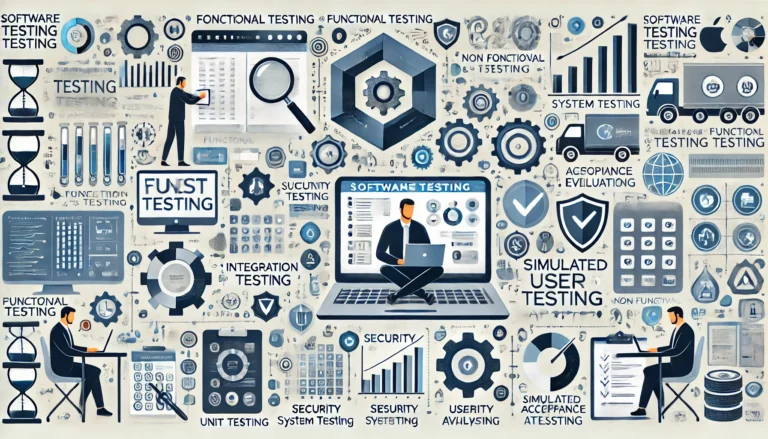Businesses in many different industries are finding blockchain technology to be an important tool. This revolutionary technology, initially tied to digital currencies such as Bitcoin, has expanded its scope, delivering decentralized solutions that improve security, efficiency, and visibility.
Leaders and innovators in several industries are swiftly changing to blockchain technology; from banking to healthcare, they are looking for methods to integrate blockchain into their current systems. Blockchain technology is decentralized, which provides new potential for enterprises. In this essay, we will look at the primary reasons for the industry’s move to blockchain technology.
Key Reasons for the Shift to Blockchain Technology Across Industries
Improved Security
Blockchain’s unmatched security is one of the main reasons industries are drawn to it. Blockchain encrypts data and transactions using cryptographic techniques, virtually preventing unauthorized users from changing data. In sectors where sensitive data must be shielded from fraud and breaches, such as finance and healthcare, this increased level of security is essential.
Transparency and Traceability
The primary characteristic that sets Blockchain apart is the transparency of the transaction record for public addresses. Financial systems and organizations are given an unprecedented level of accountability as a result, with every division of the firm being held responsible for acting honorably toward the company’s customers, community, and development.
Due to the blockchain ledger, an audit trail is available to track the origin of the goods each time a product transaction is documented on a blockchain. This can assist in confirming the authenticity of traded assets in addition to helping exchange-related firms enhance security and stop fraud.
Cost Effective
Small and medium-sized businesses are adopting blockchains mostly because of the quick decrease in overhead expenses. Peer-to-peer networks may be used for payments, and central verification is not necessary. This reduces merchant processing expenses and allows small businesses to accept Bitcoin payments.
Increased Efficiency
Blockchain allows for cross-border P2P transfers utilizing a digital currency, which speeds up transactions compared to traditional financial services. Additionally, because Blockchain is decentralized, it removes mediators from a variety of transactions, including money and real estate. A centralized system of ownership records and smart contracts that automate the administration of tenant-landlord agreements also contribute to the efficiency of property management.
Enhanced Accountability
Blockchain’s immutability guarantees that every transaction is documented and cannot be changed after the fact. Since they can rely on precise and unchangeable records, stakeholders are more likely to trust this accountability. Blockchain helps create a trustworthy framework for recording transactions and upholding regulatory compliance in sectors like banking and healthcare where accountability is crucial.
Complying with Regulations
Industries are searching for ways to improve compliance as regulatory frameworks alter. Businesses find it simpler to comply with rules because of blockchain’s traceability and openness capabilities.
Industries Adopting Blockchain Technology-
Healthcare
Critical challenges including data privacy, security, and medical record interoperability are being addressed by blockchain in the healthcare industry. To ensure confidentiality, patient data saved on the blockchain is encrypted and accessible only with authorization. In addition, healthcare providers can communicate patient records more effectively while lowering administrative costs and upholding strict security protocols. Blockchain can help ensure authenticity and lower the danger of counterfeit items by tracking the supply chain of drugs and medical equipment.
Supply Chain Management
Supply chain management is being significantly transformed by blockchain technology. The three main advantages it possesses—traceability, security, and transparency—help it tackle persistent issues in the supply chain industry, like fake goods, shipment delays, and a lack of clarity on product origins.
Blockchain technology allows for the recording of every transaction involving the transportation of goods on a decentralized ledger that is accessible to all stakeholders, including consumers and manufacturers. All stakeholders will have unwavering access to trustworthy information about a product’s lifespan thanks to this degree of transparency.
Real Estate
In the real estate industry, the integration of blockchain is offering levels of openness and efficiency previously unreachable. This technology removes conventional regulatory barriers and middlemen, simplifying transactions and making them faster and more transparent. Fractional ownership is one of the most significant innovations made possible by blockchain.
Real estate investing is now more accessible and divisible because of this strategy, which enables numerous investors to jointly own a property.
Finance and Banking
The early adoption of blockchain technology was seen in the banking and finance industries because of its potential to lower fraud, increase transaction security, and facilitate quicker and more effective payment procedures. Because blockchain eliminates the need for intermediaries, it allows peer-to-peer transactions that are faster and less expensive.
Retail
By offering an irreversible and verifiable record of the origins of products, blockchain enhances transparency in the retail supply chain. A growing number of consumers who are conscious of the things they purchase accept this transparency as truthful.
Conclusion
Blockchain technology is now available to everyone, not just those who are interested in cryptocurrencies or tech. It is becoming extensively used in many industries, changing how companies are run by providing new business models and increased security, efficiency, and transparency. Businesses that adopt blockchain technology stand to gain a competitive edge and position themselves for success in the digital era as additional use cases appear and the technology develops.
If you’re interested in implementing a blockchain solution for your business, get in touch with us right now to find out how our cutting-edge blockchain solutions may revolutionize your industry!














